The 10 Best Movies of 2023
Movies were big in 2023, in every sense. Even during the months when the writers’ and actors’ strikes put much of Hollywood on hold, the medium occupied more space than usual in the public imagination. New movie releases suddenly started to seem like events that mattered—an impression confirmed by the fortuitous confluence of Barbie and Oppenheimer on their shared opening weekend and, a few months later, by the industry-changing theater booking strategy of Taylor Swift.
Movies were also big in the more literal sense that a startling percentage of the year’s most successful and talked-about releases were really freaking long. It became routine, even for the noncritics among us, to casually announce that you were on your way out to a three-hour movie. Hell, if you watched only the three longest movies on the below list end-to-end, it would add up to roughly 10 hours of viewing. But you would have seen Anatomy of a Fall, Killers of the Flower Moon, and Menus-Plaisirs—Les Troisgros, so the bladder-testing marathon would be totally worth it. Here, in alphabetical order, are some movies that were huge for me in 2023, even when (like Theater Camp, just an hour and half long, or runner-up Fallen Leaves, a trim 81 minutes) they were objectively small. I hope watching any of these will serve as a reminder of how outsized the pleasures of cinema can be.
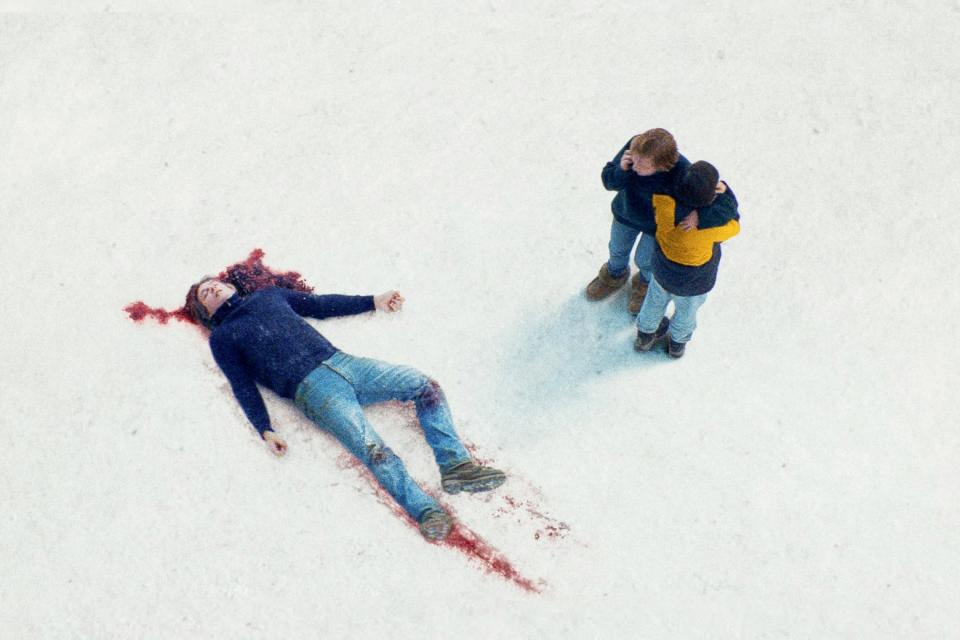
An example of how a movie can succeed in multiple genres at once: As a suspenseful thriller that keeps the viewer asking who-, how-, and whydunit up to the last frame and beyond, as a bracingly cerebral courtroom drama, and as the close-up portrait of a fracturing marriage seen from a series of subtly shifting perspectives. Did the successful novelist Sandra Voyter (the uncannily gifted Sandra Hüller) push her husband, a less celebrated author, out the attic window of their chalet-style home in the French Alps? Or did he fall by mistake, or jump on purpose? How much does the couple’s visually impaired 11-year-old son (Milo Machado Graner, my candidate for juvenile performer of the year) know about the events surrounding his father’s death? Director Justine Triet’s masterful pacing and the keenly observed script she co-wrote with her life partner, Arthur Harari, make the two-and-a-half-hour runtime of this arthouse murder mystery feel shorter than an hourlong episode of many a TV show I could name. Read our interview with Justine Triet. See it in theaters.
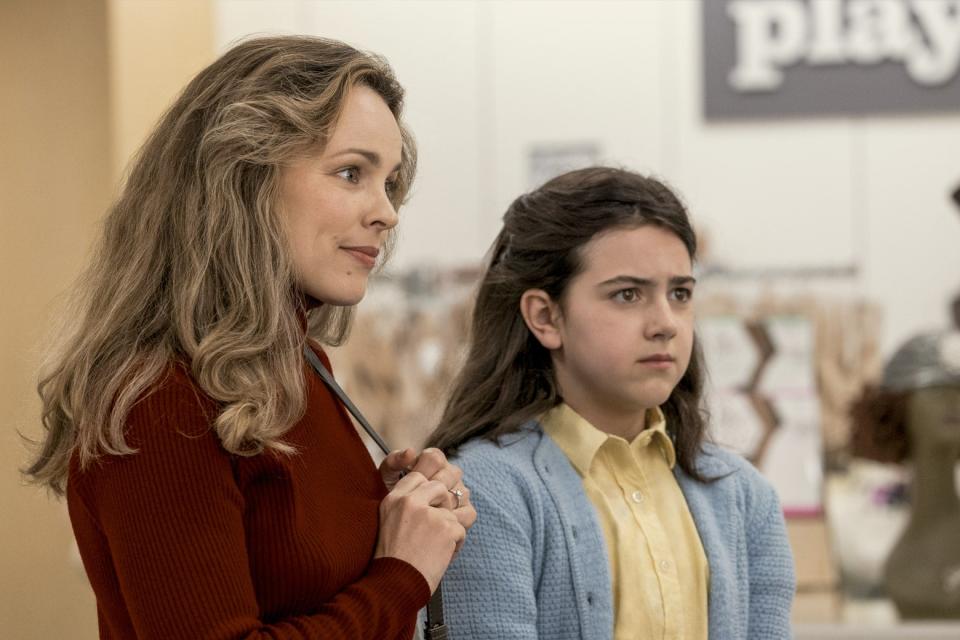
I went to the theater with my mother—not a common occurrence, since we live on opposite coasts—to see this movie, and we both cried, even though the novel it’s based on, Judy Blume’s 1970 YA classic, doesn’t loom especially large in either of our reading memories. Even if you know nothing about the book, though, this adaptation from The Edge of Seventeen writer-director Kelly Fremon Craig stands on its own. Are You There God? has a reputation as “the period book” because of its groundbreaking straightforwardness about menstruation. But 12-year-old Margaret (charming newcomer Abby Ryder Fortson) has much more on her mind than maxi-pads. She’s contending with a move from New York City to the New Jersey suburbs, a new school to find friends in, and a crisis of faith that casts her parents’ interfaith marriage in a new light. Craig adds a new layer by giving Margaret’s mother Barbara (a never-better Rachel McAdams) her own story arc as a creatively stifled stay-at-home mother. Barbara has put her teaching career on hold to follow her husband (actor-director Benny Safdie, who’s been everywhere this year on both sides of the camera). This mother-daughter coming-of-age comedy has an old-fashioned earnestness about it, with nary a fourth-wall-breaking eye roll or anachronistic needle drop. But the obstacles Margaret and Barbara face as they struggle to grow up, or grow older, as women in a world mostly made for and by men, remain all too up to date. Read our review. Rent it for $5.99 or stream it from Starz.
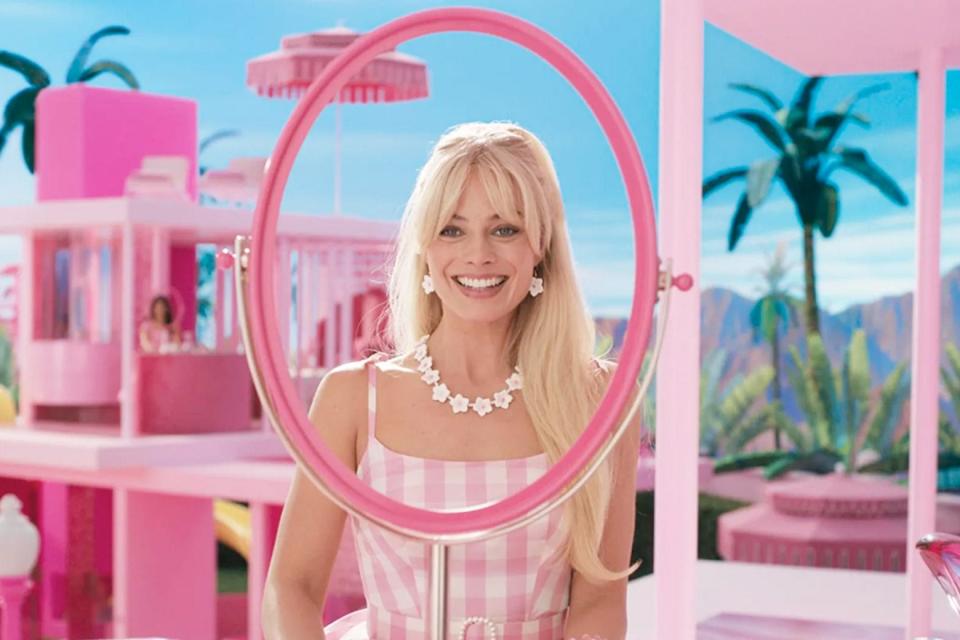
By the laws of box-office karma, every Top 10 list that includes Christopher Nolan’s Oppenheimer should also include Greta Gerwig’s Barbie, and vice versa. For anyone who lived through 2023, the two will forever be united under the endearingly dopey portmanteau “Barbenheimer,” now the name for a record-busting opening weekend when the films’ mutual rising tides lifted each other’s boats along with the hopes of a reeling movie-theater industry. It isn’t a zero-sum standoff, of course, but a list only has so many slots, and though I was awed (and, after three hours of that ever-blasting score, temporarily deafened) by Nolan’s cosmically ambitious biopic, it is the humor and heart and visual inventiveness of the Barbieverse that stay with me six months later. Sure, the human-world storyline involving America Ferrera’s character and her teen daughter never quite pops like the scenes set in Barbie Land—but how could any mere homo sapiens be as fun as Margot Robbie’s injection-molded heroine and her soulful, if brainless, would-be boyfriend Ken (Ryan Gosling in what is incontestably one of the great comic performances of 2023, and a highlight of his career so far)? Barbie isn’t even my favorite Greta Gerwig movie—that would be Little Women—but it’s nothing if not a leveling-up for this wildly gifted filmmaker still near the beginning of her career. Whatever Gerwig does next, I’ll be at the box office opening day on neon-pink rollerblades. Read all of Slate’s coverage of Barbie. Rent it for $5.99.
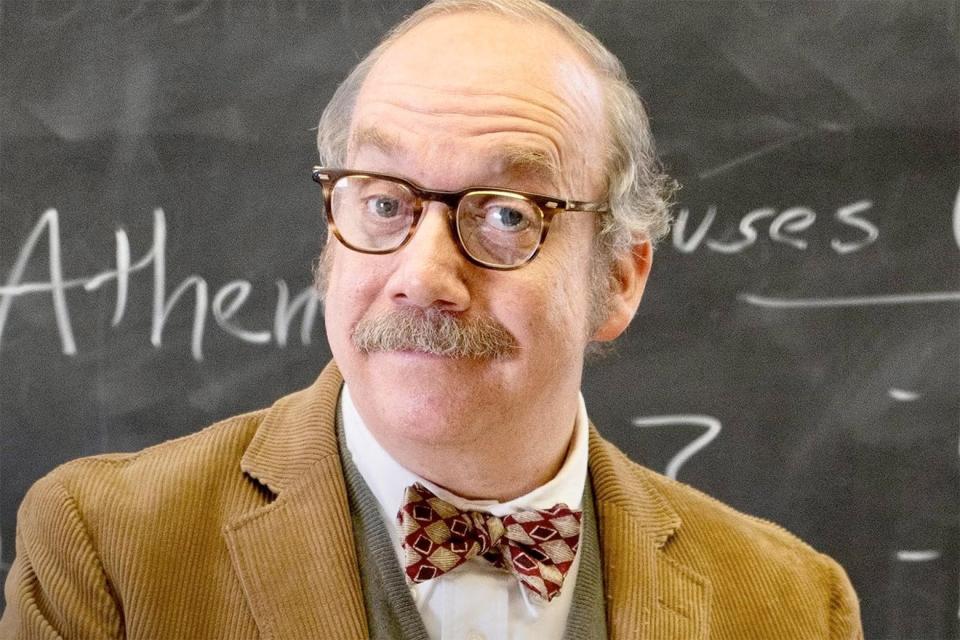
The first time I saw this retro-styled Alexander Payne comedy, set in the final weeks of 1970 at a Massachusetts boarding school, it struck me as a minor if winning entry in that auteur’s body of work. But after a week I was still laughing out loud at some of the script’s elegantly nasty wisecracks, written by David Hemingson with star Paul Giamatti’s inimitable delivery in mind. So I saw The Holdovers again, and came out convinced it is one of Payne’s best. A setup that could easily feel formulaic—a lonely, cranky classics professor (Giamatti) is stranded on campus over the holiday break with a rebellious teenage student (Dominic Sessa) and the school’s head cook, a recently bereaved mother (Da’Vine Joy Randolph)—instead delivers on every level. The Holdovers starts as a moody character study, morphs convincingly into a road-trip buddy comedy, then takes a swerve into darker emotional territory before resolving on a bittersweet note of melancholy. I see it as a perennial sad-Christmas classic, with Giamatti’s Grinch-like protagonist slowly coming to realize that the most important lessons he has to teach his young pupil can’t be found in any book—not even his personal life-advice manual and go-to holiday gift, Marcus Aurelius’ Meditations. Read our review. See it in theaters or rent it for $19.99.
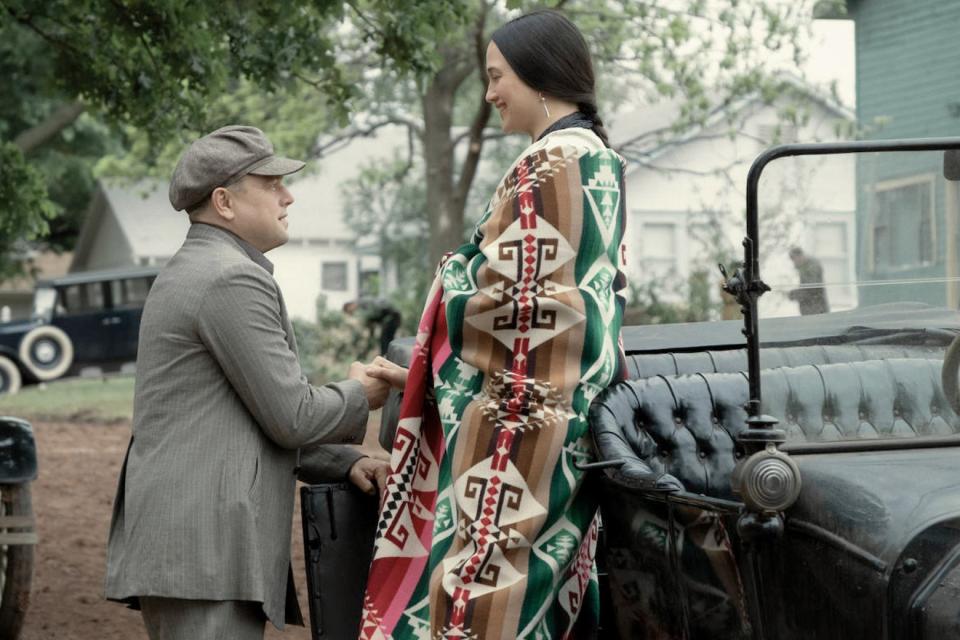
To those who found Martin Scorsese’s sprawling, lyrical, anguished adaptation of David Grann’s nonfiction book of the same title lacking—who wanted it to recount the same terrible true story, but do it somehow differently—I feel like asking, not facetiously but in real wonderment: How much better a movie could you possibly want to see? Scorsese’s choice to frame the serial murders of several dozen Osage people in 1920s Oklahoma from the perspective of the white settlers who organized the killings seems to me not only a defensible choice, but a brave one. This is above all a film about whiteness, a self-admittedly partial and inadequate reckoning with the brutality of white Americans’ history. Mollie Burkhart (the dumbfoundingly good Lily Gladstone), the oil-rich Osage woman who is robbed, betrayed, and worse by her greedy and stupid husband (Leonardo DiCaprio in top tragicomic form), may not dominate this three-hour-long epic in terms of total screen time. But the soul of the movie—and the complete collaborative confidence of an 81-year-old master filmmaker still searching for new stories to tell and new modes of expression with which to tell them—clearly belongs to her. Read all of Slate’s coverage of Killers of the Flower Moon. See it in theaters or rent it for $19.99.
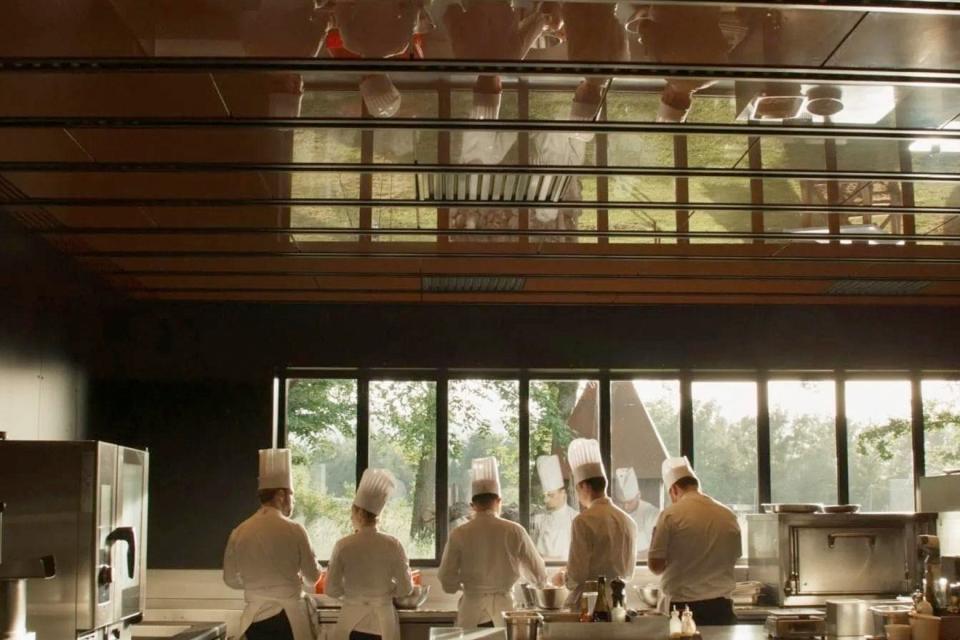
I have but one complaint about this transfixing four-hour-long megadocumentary: That title, which combines an untranslatable pun with the last name of the French restaurateur family at the film’s center, rolls off the tongue very lumpily for non-Francophones. It’s tough to pronounce and impossible to remember. But you don’t watch a Frederick Wiseman movie for the title. You watch it because it came from the mind of Frederick Wiseman, a 93-year-old filmmaking legend with a wizardlike capacity for embedding himself, his minimal crew, and the audience’s attention in the inner workings of whatever world he sets out to explore. Throughout his six-decade-long career, those worlds have almost always been institutions with a complex enough infrastructure for Wiseman’s unobtrusive, patient camera to observe the system’s many moving parts. Sometimes that means exploring hierarchies, labor relations, and internal power struggles, all of which come to light in this glimpse behind the scenes of a three-Michelin-star destination restaurant in a small central French town. But Wiseman’s infinitely curious eye is also attuned to beauty, humor, and small pleasures (menus plaisirs) of working and living well. The camera lingers over radiant heaps of fresh produce at a farmers market and shows close-ups of chefs’ hands performing miracles of knifework. At the center of it all is an affectionate portrait of the Troisgros family, who have been restaurateurs for generations. They pursue their life’s mission with a zeal that’s inspiring and, at times, amusing, as we watch the ludicrously knowledgeable Troisgros père manage to out-food-nerd even his perfectionist chef sons. See it in theaters.
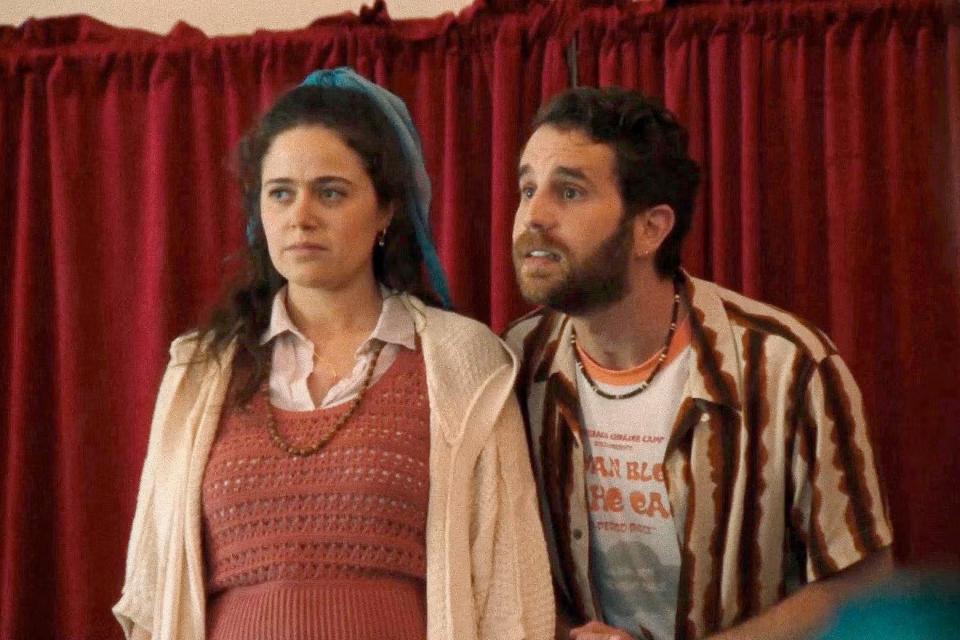
This loving chronicle of the on- and offstage shenanigans at a summer drama camp in the Adirondacks is the movie equivalent of a yarn-and-popsicle-stick weaving your kid brought home from crafts class. Theater Camp was co-directed and co-written by one of its stars, The Bear’s Molly Gordon, based in part on remembrances of her own childhood friendship with co-star Ben Platt. The pair’s longtime friend Nick Lieberman co-wrote and co-directed with Gordon, while Platt’s now-fiancé Noah Galvin plays the key role of an overworked production manager. All those crisscrossing real-life connections somehow result not in one of those too-many-cooks comedies that feel like a collection of sketches, but in a cohesive and warmhearted 93-minute tribute to arts pedagogy (think School of Rock, but with Sondheim) and to the self-serious drama teen who lives within us all. Yes, the mockumentary-style framing device is overfamiliar and distracting, but it falls away after the first few scenes, and the camp’s big end-of-summer production Joan, Still—a deranged original musical with at least two songs I still burst into at random six months later—achieves the rare trick of creating a fictional work-within-the-work that is supposed to be really good, and actually is. Read our review. Stream it on Hulu or rent it for $5.99.
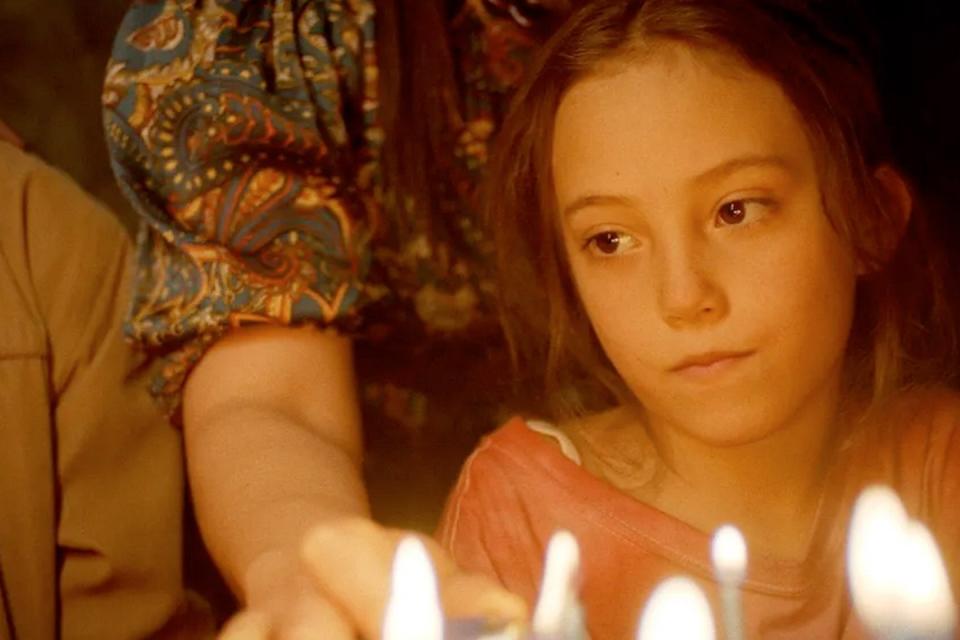
Mexican writer-director Lila Avilés’ filmmaking debut, the minimalist social drama The Chambermaid, made my best-of-the-year list for 2019. Her follow-up feature is similarly delicate in its observation of setting and character, but it marks a significant step up in complexity, with Avilés documenting not just one individual’s experience but the swirling, buzzing, squabbling life of a loving and grieving family. A 7-year-old girl, Sol (Naíma Sentíes), spends the day at her grandfather’s house, where preparations are underway for her terminally ill father’s birthday party—a celebration that, to judge by the barely disguised sorrow of the grown-ups in the house, seems likely to be his last. Avilés takes her time letting the audience get to know, and grow to care for, every odd, flawed, and flailing member of Sol’s extended clan, so that by the time the party guests finally start to arrive, you feel like the door they’re knocking on is your own. See it in theaters starting on Jan. 26.
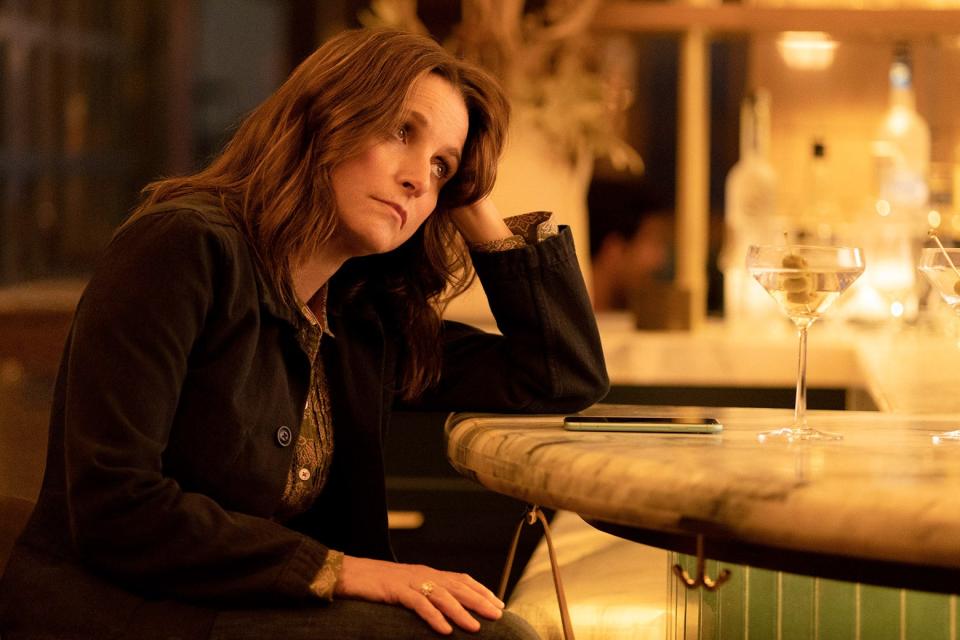
Nicole Holofcener is the closest thing contemporary American cinema has to an Éric Rohmer, and we should treasure her movies more. A simple plot description of You Hurt My Feelings makes it sound like social satire: A happily married writing teacher (Julia Louis-Dreyfus) with one successful book goes through a crisis of confidence when she overhears her ever-supportive husband (Tobias Menzies) confess to a friend that he doesn’t care for what he’s seen of her work in progress. This is what you call a conflict? Get over yourself, lady! But Holofcener, who’s more a wry humanist at heart than a wielder of satirical barbs, and Louis-Dreyfus, a pointillist of a comedienne who can get a laugh from a line of dialogue as simple as “Well then … never mind!” are a match made in heaven, as they already proved in their last film together, the wonderful romantic comedy Enough Said. I hope they’ll keep working together long enough to turn that pair of collaborations into a neurotic-middle-aged-woman cinematic universe. Read our review. Rent it for $5.99.
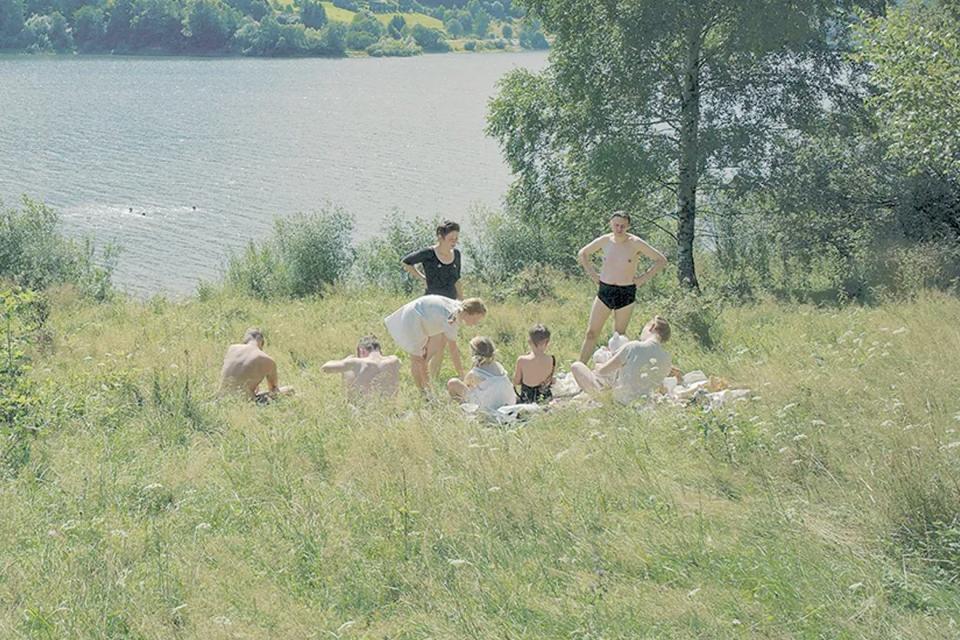
Writer-director Jonathan Glazer’s loose adaptation of a novel by the late Martin Amis places the viewer inside the marriage of a real-life couple, the Auschwitz commandant Rudolf Höss (Christian Friedel) and his wife Hedwig (Sandra Hüller, who is on this list from A to Z—she also starred in Anatomy of a Fall). The Höss family lives next to a high stone wall that separates their well-appointed compound from the grounds of the concentration camp. Though gruesome evidence of the mass murder taking place next door is everywhere (the smoke curling from a chimney in the corner of the frame, the stolen luxury goods that Hedwig models for herself in the mirror), Glazer never permits us a glimpse of what’s behind that wall. For good reason: The Höss family’s whole life—an endless, faintly dull round of swimming outings, children’s games, and afternoon teas with the other nice Nazi ladies—has been arranged to ensure that such unpleasant realities as the genocide that enables their lifestyle are kept out of sight and out of polite conversation. The director’s rigor is as unblinking as the score by Mica Levi is haunting, and Hüller and Friedel fearlessly explore the hollowed-out inner lives of two people who are at once shockingly evil and painfully ordinary. Read our review. See it in theaters starting on Friday.
Runners-up: Dungeons and Dragons: Honor Among Thieves, Fallen Leaves, M3gan, Reality, and the rerelease of Stop Making Sense.

